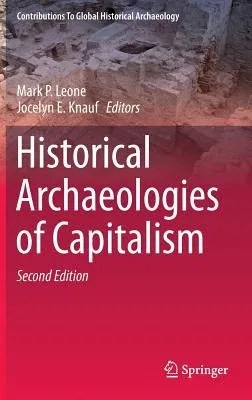This new edition of Historical Archaeologies of Capitalism shows where
the study of capitalism leads archaeologists, scholars and activists.
Essays cover a range of geographic, colonial and racist contexts around
the Atlantic basin: Latin America and the Caribbean, North America, the
North Atlantic, Europe and Africa. Here historical archaeologists use
current capitalist theory to show the results of creating social
classes, employing racism and beginning and expanding the global
processes of resource exploitation. Scholars in this volume also do not
avoid the present condition of people, discussing the lasting effects of
capitalism's methods, resistance to them, their archaeology and their
point to us now.
Chapters interpret capitalism in the past, the processes that make
capitalist expansion possible, and the worldwide sale and reduction of
people. Authors discuss how to record and interpret these. This book
continues a global historical archaeology, one that is engaged with
other disciplines, peoples and suppressed political and economic
histories. Authors in this volume describe how new identities are
created, reshaped and made to appear natural.
Chapters in this second edition also continue to address why historical
archaeologists study capitalism and the relevance of this work,
expanding on one of the important contributions of historical
archaeologies of capitalism: critical archaeology.

